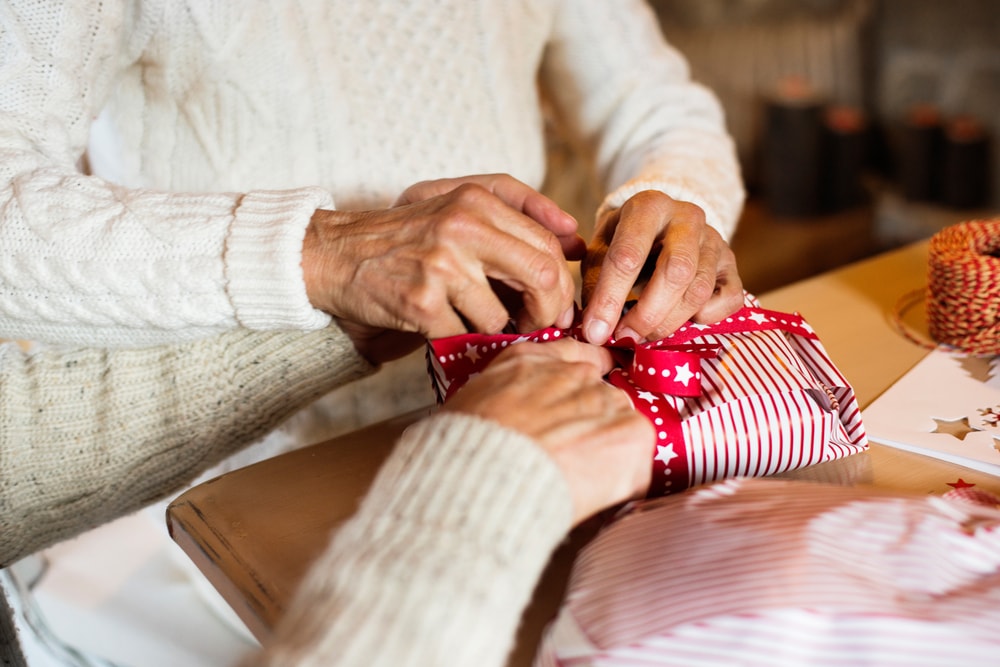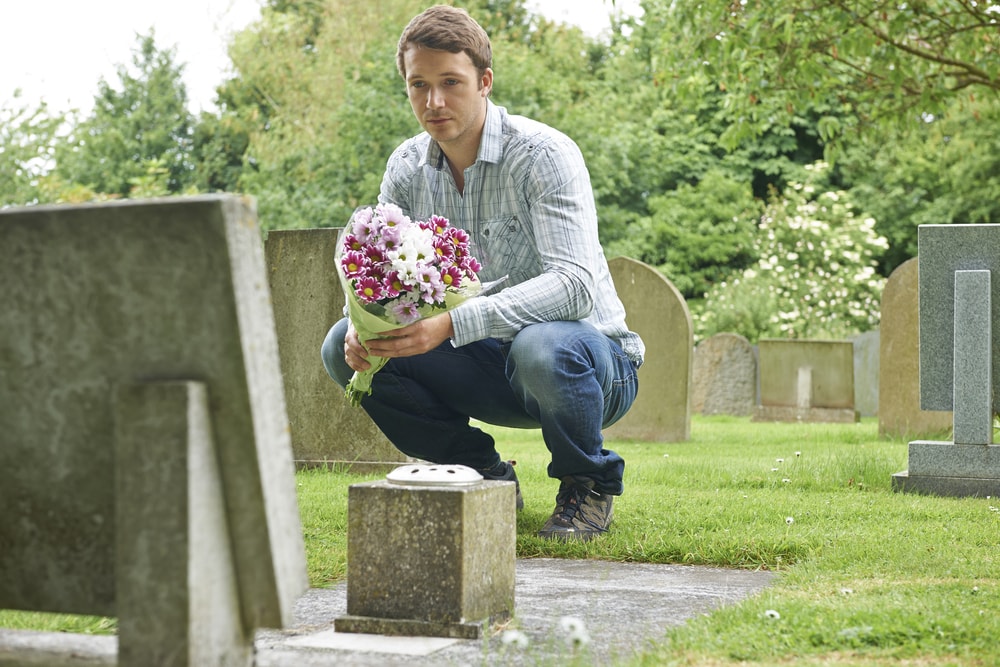
Grief, in all its forms, is exhausting mentally, physically, and psychologically. In addition to all the emotions it stirs up, loss forces us into a life change – learning how to move forward without a loved one. For those who have lost a loved one to suicide, there are added complications, like wanting to understand why, feeling isolated, and dealing with stigma and the negative attitudes of others. Because of these added factors, it’s even more important to practice self-care as you move through the process of grieving, coming to terms with what happened, and figuring out how to move forward, even if you don’t have all the answers.
10 Self-Care Tips After Suicide Loss
1. Explore your feelings
With suicide loss, so many questions and negative emotions may be fighting for space in your mind. Why did they do this? What could I have done differently? Anger, shame, guilt, confusion, and possibly relief, may battle with the sadness you feel. These complex emotions are completely normal. You have been confronted with a devastating, unexpected loss, and now, you have to wade through the questions and emotions that come with it. Don’t be afraid to name your emotions, whatever they may be. The sooner you recognize them, the sooner you can learn to deal with them.
2. Find ways to express those feelings
For many people, expressing our feelings means talking to someone we trust – whether that’s a friend, family member, or counselor. With suicide loss, people are generally more reluctant to talk about the loss because they feel ashamed of what their loved one did, or they can’t bear to process the emotions raging within them. They’d rather bottle it up and pretend everything is okay.

It’s not healthy to keep things inside. The only way to begin to process your feelings is to express them. However, you can carefully choose your method of expression. Maybe it is talking to someone. It could also be writing down what you feel, painting, drawing, walking in nature, or any number of things. The point is – find what works for you and begin the work of processing any negative emotions you may feel.
3. Take your time
Grief isn’t linear. It doesn’t follow a timeline or schedule. We can’t input a formula, and in exactly 10 months and five days, everything will be over and dealt with. Ultimately, the time it takes depends on you. Dr. Alan Wolfelt, nationally recognized grief expert and founder of the Center for Loss & Life Transition, says, “I have learned that we cannot go around the pain of our grief. Instead, we must learn to embrace and express it. This is hard but absolutely necessary work.” Take your time – all the time you need – but do the work. Process your feelings. Learn to let go of the unanswered questions. Find new hope. Live your life and remember your loved one.
4. Treat yourself kindly
When something happens that you feel you could have prevented, you may blame yourself for not making different choices. You may be taking on part of the responsibility for your loved one’s death, but ultimately, it was their decision. Maybe you could have been kinder or more encouraging or noticed something sooner, but either way, the decision was out of your hands. While feelings of guilt may rise, treat yourself with kindness. You may need to accept that you could have done more, but in the same turn, also accept that your loved one made a choice that was beyond your control. Give yourself grace. Treat yourself and others with kindness. Love those still around you wholeheartedly.
5. Reach out to those you love
While your grief journey is something you must walk yourself, you don’t have to walk alone. Reach out to the people in your life who have been steadfast. Draw on your support groups – family, friends, church, volunteer groups, etc. There are people who love you, and they will stand by you as you process your loved one’s death. They may not always know what to say – you may not know what to say – but you can invite a few hand-selected people to walk with you as you learn how to move forward.
6. Eat well and get enough sleep
Grief can take a lot out of you. You may forget to eat or feel excessively tired. When dealing with suicide loss, sleep may feel elusive because questions plague your thoughts. No matter what, be intentional about taking care of your physical body. Make sure that you are eating, even if you don’t necessarily feel like it. Nap when you’re tired unless you’re having trouble sleeping at night. If you are having trouble sleeping at night, avoid naps, try journaling your thoughts before bed, and create a bedtime routine you can sustain. By journaling at night, you can get those niggling thoughts out before your head hits the pillow – it may just help you sleep through the night.
7. Allow yourself to have fun
It’s okay to have fun. You may still be dealing with the loss of your loved one, but that doesn’t mean you can’t enjoy the life you have. Take a long soak in a hot bath. Go out to the movies with your friends. Bake your favorite dessert. Go shopping for that new pair of shoes. Even though you’re grieving, you must hang onto the joy of life. There is so much possibility ahead of you, and while there will be dark days when grief shows its face, there are also days of joy and happiness to come. After all, laughter is the best medicine.
8. Establish a routine
When something unexpected happens in life, everything feels out of control. Your routine is upset. You are suddenly dealing with events and people you didn’t expect. This is what happens when we lose a loved one suddenly – our lives lose their normalcy and are thrown into disarray. By establishing a routine, you can begin to gain back some normalcy and control. When you feel comfortable in your routine, you can begin to process what’s happened and learn how to deal with and manage your grief.
9. Recognize when you need a little extra help
With every suicide death, an estimated six or more people become “suicide survivors” – people who have lost a loved one and are struggling to understand why. Research shows us that suicide survivors often need the help of a mental health professional or a grief support group as they process through the loss. Because of the complex emotions and the unanswered questions, it’s always important to consider whether you should talk to a professional who can help you move forward.

A skilled mental health professional or grief counselor can:
- Help you make sense of what happened and process your reactions to the loss
- Work with you to explore any unresolved issues in your relationship with your lost loved one
- Offer specialized support and understanding as you walk through your grief journey
10. Enjoy the good things in your life
When dealing with loss, especially a traumatic loss, it’s important to keep perspective, to focus on the good things in life. Otherwise, we can get transfixed on what’s difficult and beyond our control. So, take time every day to hug your children. Embrace your parents. Spend time with the people you love. Do the things that bring you joy. The good things in life sustain us through the bad. They give us hope for the future, and even though it may seem like the world is ending, there are good things coming, if you take the time to look.













 6. DON’T Be Nosy
6. DON’T Be Nosy











 Myth #10: Grief is reserved for the passing of a loved one.
Myth #10: Grief is reserved for the passing of a loved one.









 Candles have long been used to as a symbol for remembrance. Keeping the light burning signifies that the memory of a loved one still shines bright. This Christmas season, consider lighting a candle in honor of the person you’ve lost. You can place the candle in a special place and take turns lighting the candle through the season. This way, everyone has a chance to actively remember the person who has died.
Candles have long been used to as a symbol for remembrance. Keeping the light burning signifies that the memory of a loved one still shines bright. This Christmas season, consider lighting a candle in honor of the person you’ve lost. You can place the candle in a special place and take turns lighting the candle through the season. This way, everyone has a chance to actively remember the person who has died.
 For this simple idea, all you need are biodegradable balloons and a sharpie. Blow up the balloons, have each person write a special message on their balloon, and then, release them to the sky. This practice is actually more meaningful than you might think, and it’s an easy way to get everyone involved. But remember – get biodegradable balloons that are friendly to the environment.
For this simple idea, all you need are biodegradable balloons and a sharpie. Blow up the balloons, have each person write a special message on their balloon, and then, release them to the sky. This practice is actually more meaningful than you might think, and it’s an easy way to get everyone involved. But remember – get biodegradable balloons that are friendly to the environment.




















